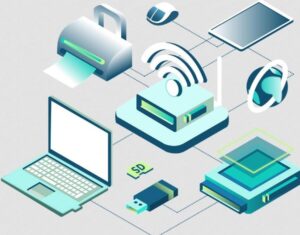Dare to Test Digital Solutions

Digitization connects, integrates and develops the basis for system services within the energy system. A smart district heating network can take in large amounts of input data from the outside world such as, for example, temperature, pressure, flow, weather forecasts and conditions for production. This data generates insights that lead to a range of new tools to develop and improve district heating companies’ customer relationships, such as customized solutions and improved offers.
It is not primarily about the technology, but about the consequences it can have. There is a certain fear among companies about what the technology can bring. But I have already seen examples of companies that see that digitization can lead to benefits in many areas.
Although some have been initiated, there is still much to be done. The longer the energy industry takes, the greater the risk that new players will get in between the energy companies and their customers. For example, it can be about technology to control indoor temperature and an offer of energy services. The energy companies thus risk losing control over their customers to other players.
Be curious and have an open, but pragmatic approach to digital technology and start daring to test. Make the digitization journey together with your customers. Don’t forget the IT security issues, but don’t let fear stop development.
Companies and their employees now have the freedom to ask: What do I want to achieve and which workplace is best suited for that purpose? The task of the company and the IT manager is to ensure that the technology never comes into question in that decision, but acts as a silent aid for all work environments. For IT managers, this is a significant transition. In the past, companies prioritized technology investments locally in the office, but if hybrid work is to function properly, all work environments must now be treated equally. The goal should be to ensure a uniform work experience, regardless of location.
With this in mind, investing in the right technology is critical. The focus should be on ensuring that normal business processes, such as accounts payable or recruitment processes, still work effectively despite more employees choosing to work remotely on a part-time or full-time basis. Digitization is an important part in making this remote work because the teams cannot work on physical documents together easily. By transforming physical documents into digital data, employees can ensure that team members who work from home have access to them, while ensuring that they can continue to work on the documents themselves if they go home – enabling effective hybrid work both alone and in the team.



